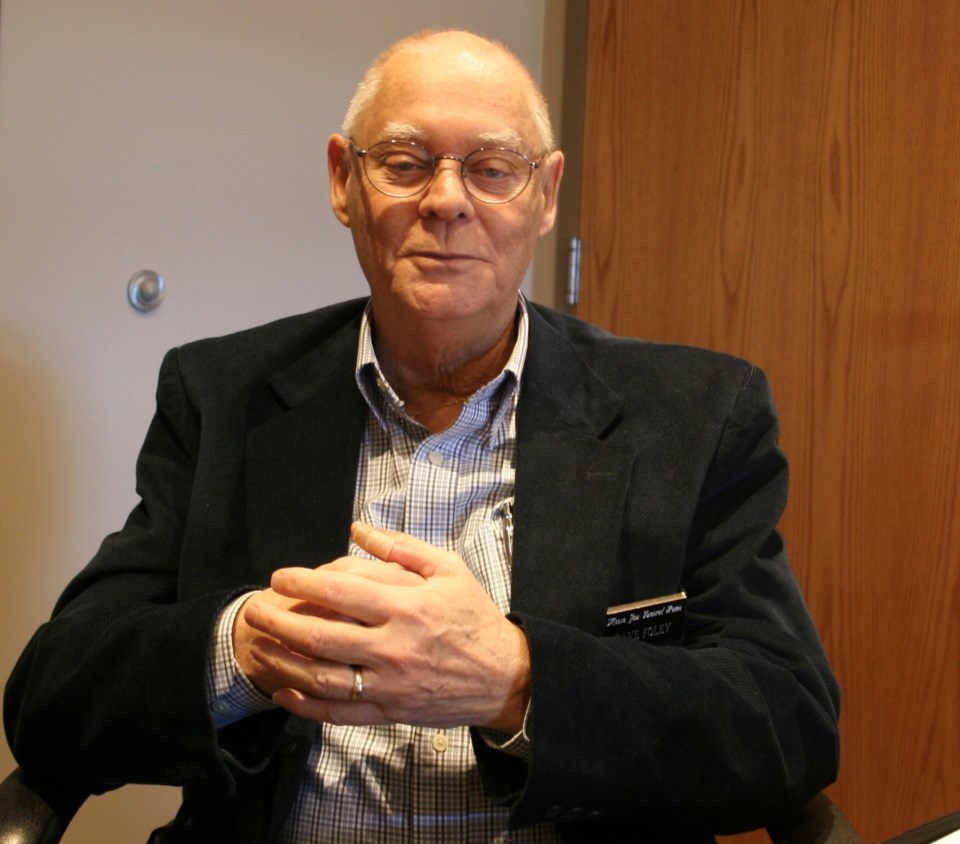The common faith-based funeral service is no longer as common as it once was.
“More and more people have a very tentative connection to faith of any kind and more and more people are secular,” says Dave Foley of Moose Jaw Funeral Home.
“More and more people don’t want God in their service.”
He said some don’t want a service with a sermon.
“While that is up to the family, I still have a problem with preaching a sermon at a funeral.
“I want to make it clear I’m not criticizing the work pastors do” but this is a social trend.
Foley, a former Salvation Army pastor and former social worker, ended his career with nearly two decades as manager of the Moose Jaw Housing Authority. While he was still with the housing authority he started as a casual attendant with the Moose Jaw Funeral Home “and just sort of slid into being the (funeral) celebrant.”
Although he’s conducted over 200 funerals since 2014 as a pastor, Foley was interested when he learned about training for funeral celebrants by the Insight Institute.
Recognizing a trend to less faith-connected services, the institute has trained more than 3,800 funeral celebrants.
Foley took the training at a Kitchener, Ont. class with mostly funeral attendants or funeral directors.
That service of a celebrant was added to the Moose Jaw Funeral Home options.
“We offer this option when people are wanting to arrange a funeral if they don’t have a pastor or some one absolutely close to them they trust.
"Until the celebrant training, I was presented as someone who was ordained. I have no problem if people are not involved in churches.”
Now he is certified — one of five in Saskatchewan — as a funeral celebrant.
The service procedure once so common has been altered so “you create the service based on what the family wants. One of the greatest things about the instruction was how to make the service truly reflect the person.
“I think it's absolutely necessary for me to sit down with the family and engage in conversation so that I have confidence that I actually know the person.”
He will sit down with several generations of the family and talk about the deceased for hours “so that I can build a picture of the person that allows us to recognize all that we need to recognize without me being a preacher.”
Some families want no service at the request of the deceased.
“If there is an opportunity to talk to them about that I have to remind them the funeral service is not for the person who died. It’s primarily for those of us who are left. It helps us to get some closure.
“For most of us some kind of ceremony, simple as it might be, helps us to bring this to a conclusion.”
The celebrant training involved groups such as Sikhs and Muslims.
Ron Walter can be reached at [email protected]




